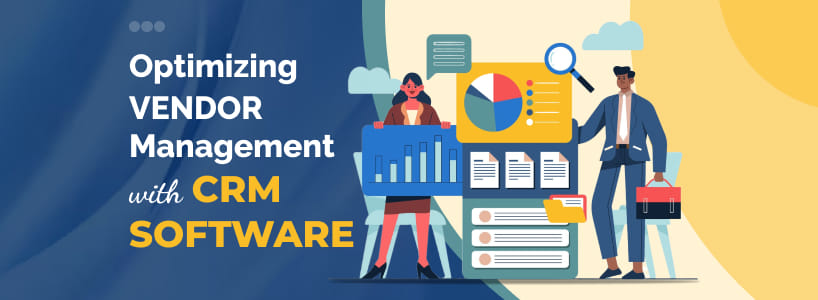Managing vendors effectively is no longer just about keeping a list of contacts. In todays competitive business environment, organizations must build strong, transparent, and data-driven relationships with their suppliers to ensure uninterrupted supply chains and better cost control. This is where CRM software for vendor management becomes a game-changer.
A Customer Relationship Management (CRM) system, traditionally used for sales and customer service, has evolved to handle much more than client data. Modern CRMs now allow companies to track vendor communications, evaluate performance metrics, automate follow-ups, and centralize purchase ordersall in one place. This shift helps businesses reduce manual errors, cut down on repetitive tasks, and gain actionable insights into their supplier network.
Centralized Data and Better Collaboration
One of the biggest challenges in vendor management is scattered information. Without a single source of truth, teams waste time searching through emails, spreadsheets, and documents. CRM platforms provide a unified dashboard where vendor contact details, contracts, invoices, and correspondence are stored securely. This enables faster decision-making, enhances collaboration between procurement, finance, and operations teams, and ensures that no critical deadlines or obligations are missed.
Automating Workflows and Compliance
Another major benefit of CRM software is the ability to automate repetitive processes. For example, businesses can set up automated reminders for contract renewals, compliance checks, or payment approvals. This minimizes human error and ensures that your company stays compliant with internal policies and external regulations. In industries where compliance is non-negotiable, this feature alone can save significant costs and reputational risks.
Real-Time Analytics for Vendor Performance
Tracking vendor performance manually can be cumbersome. CRM systems provide built-in analytics and reporting tools that let you measure delivery times, quality scores, and pricing trends. With these insights, you can compare suppliers objectively and negotiate better terms. Over time, these data-driven decisions help optimize your vendor portfolio and improve overall profitability.
Scalability and Integration
As your business grows, so does your network of suppliers. A robust CRM scales with you, integrating seamlessly with other enterprise tools like ERP, inventory management, and accounting software. This interconnected ecosystem means your procurement and vendor-management processes run smoothly without the need to switch between multiple platforms.
Choosing the Right Solution
When selecting the right system, look for solutions that specifically cater to supplier and vendor workflows. Some of the best CRM tools offer modules designed for procurement teams, giving them the ability to manage contracts, communications, and performance from a single interface. Investing in such a system not only improves efficiency but also strengthens long-term supplier relationships.
Conclusion
Vendor management can make or break an organizations operational efficiency. By implementing a CRM that goes beyond customer data and extends to your supply chain partners, you gain better visibility, control, and collaboration. With the right technology, your business can transform vendor relationships into a strategic advantage.
